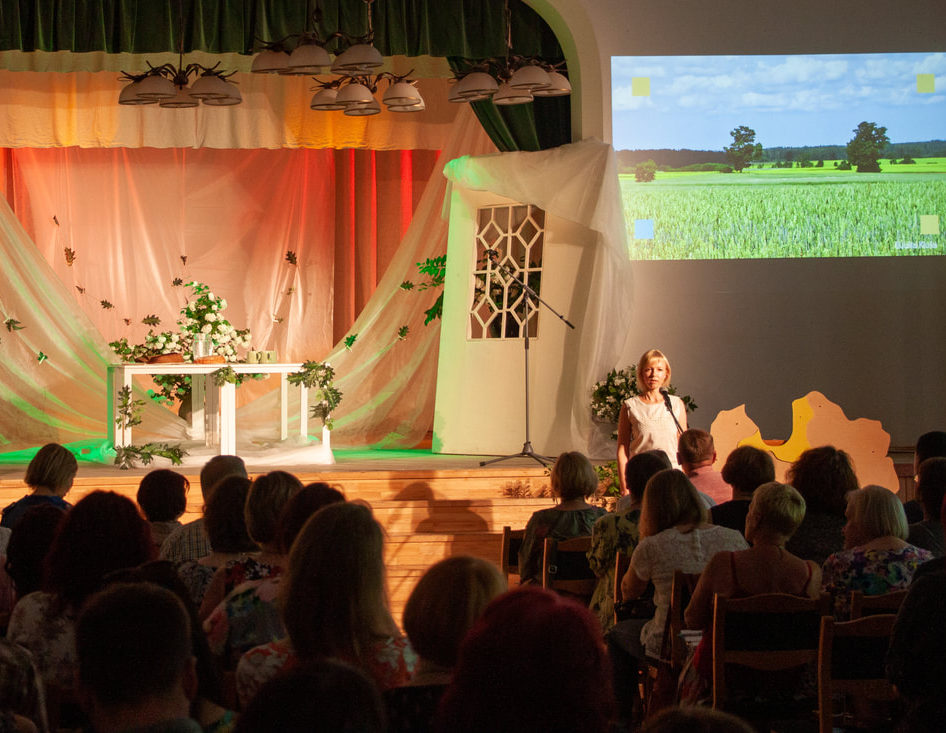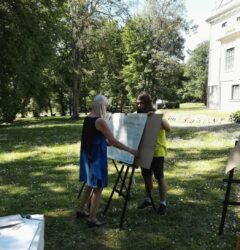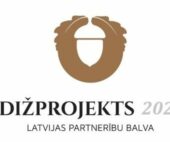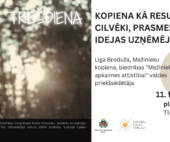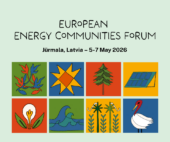From June 5 to 7, 2019, the 4th Latvian Rural Community Parliament was held in Zaļenieki, Jelgava Municipality creating the dialogue between active citizens from rural areas and policy makers. The aim of the event was to identify actions to be implemented in the next two years for creating the sustainable and modern opportunities in rural and small town communities in Latvia.
Participants of the Latvian Rural Community Parliament call on society, decision makers and policy implementers to work closely with each other by adapting legislation, developing support tools and raising public awareness of new initiatives, approaches and key issues that would promote rural areas and small towns as a modern and dynamic places, where citizens can fulfill their socio-economic needs, taking into account current environmental issues.
More than 200 participants took part in the 4th Latvian Rural Communities Parliament, including representatives of rural and small town communities and local, regional and national level CSOs, state, ministry and municipal public administration institutions, entrepreneurs, professors, lecturers and students from Latvian universities, newcomers to the countryside, practitioners of new rural paradigms and rural development enthusiasts, including foreign representatives from nine countries.
Latvian rural areas and small towns are rich in diverse experiences and civic and entrepreneurial initiatives undertaken by citizens, businesses, organizations and municipalities to improve the socio-economic situation and environment. More than 50 case studies were presented in the 4th Latvian Rural Communities Parliament, reflecting the new rural paradigm – with new approaches and solutions to respond to long-standing challenges such as depopulation and youth leaving countryside, quality and accessibility of public services, as well as to introduce creative and innovative use of technologies, new methods and knowledge to develop solutions for entrepreneurship and community development. This positive experience needs to be learned, promoted and replicated in the development of policies and support programs that would facilitate (not limit) the wider implementation of such initiatives.
The Resolution of the 4th Latvian Rural Communities Parliament is available here:
Based on the information, views and suggestions expressed in working groups, participants of the 4th Latvian Rural Communities Parliament are advocating a new rural paradigm by developing seven lines of action that need to be included and implemented in next-year planning documents and activities promoting holistic rural development:
About smart communities:
- To support the development and implementation of village development plans, providing support to local initiatives;
- To recognize knowledge, competencies and the human factor as key values and resources in the community, incl. developing and supporting cooperation, sharing of skills, competences and knowledge between local people;
- To provide support for alternative school models from the state and municipal budgets, promoting the development of a unique program for schools in rural areas that offer high quality learning according to local needs;
- Include actual topics, as ecology, environmental protection and climate crisis, technologies, innovative solutions, practical skills of art and traditions, in content for lifelong learning and rural.
About rural population:
- To adapt legal norms for construction to modern solutions and practices, incl. supporting the construction of ecological housing;
- To simplify conditions for renovation of residential buildings;
- To raise awareness of employers in the private and public sectors about remote working and creation of appropriate infrastructure to ensure remote working;
- To support family resettlement by promoting better credit policy for properties in rural areas, rise mobility opportunities and mobile services.
About working and rural areas:
- To review employment policy, in particular support system for the long-term unemployed and pre-retirement age, providing alternative work patterns and forms of support;
- To expand the range of recipients of the status of social entrepreneurship by including CSOs;
- To develop training and education for young specialists by strengthening vocational education and its content, tailoring it to the specifics and topicalities of the rural areas;
- To provide support tools for entrepreneurs, who provide apprenticeship, training and exchange of experience for new professionals, for example in the form of tax discounts.
About economic activities:
- To establish a support mechanism and business environment where additional conditions (credit policy, equity in infrastructure and service costs) encourage and support starting entrepreneurship outside main cities, incl. providing additional territorial eligibility criteria for financing start-ups outside cities;
- To support the development of business libraries for entrepreneurs as a places for day-to-day work and sharing experiences, as well as for short-term childcare;
- To provide wider access to support tools for small businesses, home producers and craftsman;
- To provide separate support program for entrepreneurs with annual turnover up to 100 000 Eur.
About financial redistribution and non-financial support to small farms / companies:
- To leave 2014-2020 programming period the ceiling for the population of local action groups also in the next programming period, excluding nine main cities from the support areas;
- To increase the availability of mentoring and consulting support for new and existing entrepreneurs, for example in marketing, communication, etc.;
- To provide specific support program and stimulate innovation in enterprises, being aware of the increased risk of this type of projects;
- To provide support for trainings for entrepreneur staff to rise productivity and support development;
- To revise the EU subsidy system, including additional support for farms that implement greening activities and development based on environmentally friendly actions.
About available local resources:
- When deciding to close schools, to develop a municipal or village action plan to maintain the social environment of the place and future use of the vacant space, incl. exploring the possibility of developing cooperation with alternative schools elsewhere;
- To ensure access to information and education about alternative and energy-efficient housing to managers and owners of the properties;
- To raise public awareness that existing resources are not infinite and will not always be available;
- To reduce the length of supply chains, especially in the catering sector.
About strengthening democracy and civic engagement:
- To pay close attention to the identity of places, access to public services and opportunities for possibilities of civic engagement in municipalities during and after the implementation of the administrative-territorial reform;
- To improve legislation so that citizens and non-governmental organizations representing them can not only give advisory opinions, but can actually influence important municipal decisions, incl. organizing municipal referendums;
- To provide material and financial support programs for improvement of social environment and community development, respecting diversity of rural areas and the unique needs of each location;
- To provide financial and operational support to community leaders and diverse community and active citizen initiatives, incl. non-traditional and innovative activities.

Activity is financially co-supported by the Society Integration Foundation from the State Budget, allocated by the Ministry of Culture.The Latvian Rural Community Parliament is part of European Rural Parliamnet movement.


